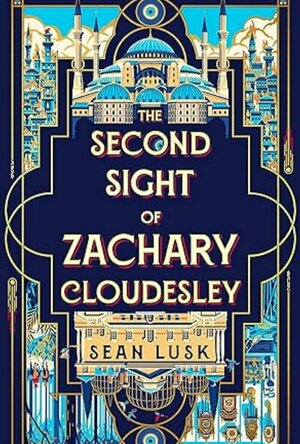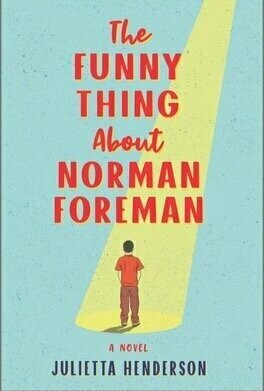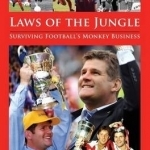
Laws of the Jungle: Football's Monkey Business
Brian Laws and Alan Biggs
Book
Brian Laws has played in all four professional divisions of English football. He has also managed at...
Merissa (13765 KP) rated A Cross to Bear in Books
Dec 17, 2018
This book starts at the end, and then you go to the beginning, slowly working your way back to the end. Trust me, it works. So many emotions when I was reading this! So sad, so hard, and also so horrible in some ways. Ethan is the first class bad guy, he really was completely loathsome. I wish I could say that he gets his comeuppance in this book, but he doesn't. I will have to pray to Jet's Gods of Karma in the hope that he did!
Extremely well written, with no editing or grammatical errors to disrupt my reading flow, this was a book that I enjoyed, even though parts of it were hard to read, so well done to Julieanne Lynch! Definitely recommended.
* A copy of this book was provided to me with no requirements for a review. I voluntarily read this book and my comments here are my honest opinion. *
Merissa
Archaeolibrarian - I Dig Good Books!
David McK (3705 KP) rated Quantum Leap: Carny Knowledge in Books
Jul 23, 2023
Recently, I've started watching the Paramount+ revival of one of my favourite 'tweenage' years shows.
I'm not yet - as of the time of writing - sold on it.
Having watched an episode or two, I thought I would revisit the original, albeit in literary rather than audiovisual form - I know that, in the past, I had read Quantum Leap 00: Too Close for Comfort and Knights of the Morningstar, but I had never read this one. When I cam across it, therefore, I thought I would give it a go.
I have to say, also, that - unfortunately - I just wasn't really all that impressed by it. I don't know whether that's because this was #1 in the book series, or because of the subject matter - being from the UK, carnivals (and the people who run them, known as Carnies (or so I've heard) ) aren't really all that much of a thing here! Nor do I particularly like roller-coasters ...
In this, Sam finds himself in the body of one such 1950 Carnie, a childhood polio survivor, who seems to have visions of the future in which people die after a roller-coaster derails on its maiden run, with all the hopes and dreams of the Carnival workers pinned on that roller coaster. This, I found, was bit slow in starting, although it did pick up towards the end! There's also segments in the (1990s!) future, showing what is missing from the revival in the Waiting Room, and explains a bit better than that revival does why Al is Sam's hologram as opposed to Addison being Ben's.
Worth a read for nostalgia factor, maybe.
![The Girls on Chalk Hill (Detective Lexi Bennett #1) [Audiobook]](/uploads/profile_image/741/d09ec1cd-9c4a-4cea-9388-9df13c5e0741.jpg?m=1685882567)
The Girls on Chalk Hill (Detective Lexi Bennett #1) [Audiobook]
Book
They lie on the hillside, wearing matching white dresses, tiaras in their blonde hair. Each of them...
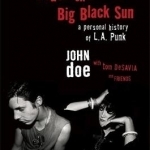
Under the Big Black Sun: A Personal History of L.A. Punk
John Doe and Tom DeSavia
Book
Under the Big Black Sun explores the nascent Los Angeles punk rock movement and its evolution to...
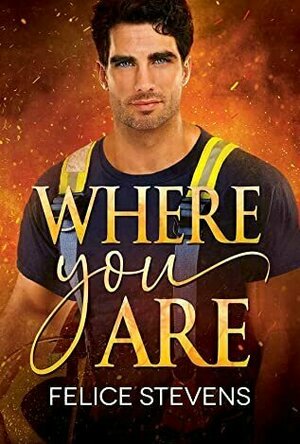
Where You Are
Book
Former model and B-list actor (B meaning really bad) Isaac Seidel is now a NYC firefighter on...
MM Contemporary Romance
ClareR (6067 KP) rated The Second Sight of a Zachary Cloudesley in Books
Nov 11, 2023
Starting in 1754, Zachary is born on the day that his mother dies. His father, Abel, loves him fiercely, and wants to always do his best for him, which brings a Mrs Grace Morley and her baby daughter Leonora into their lives. She’s a strong, forceful woman who is to leave an impression on everyone that meets her.
After a near-fatal accident leaves Zachary blind in one eye, his father sends him to live part of the year with his Aunt Frances. This is another strong, independent woman who is determined to make Zachary the son she never had. She sees in Zachary the gift that his mother had: the ability to read people and see inside to their hopes, wishes and dreams - and also their not-so-positive thoughts.
Abel finds himself forced to go to Constantinople, and Zachary begins to have visions that send him on a chase across Europe to find his father after he loses contact with him.
The descriptions of London, Frances’ house and land, and those of Constantinople are rich and detailed - I could have been there. I was gripped from the first page, immersed in an 18th century world where lives were at stake and a boy had to be brave to save the life of his father. I loved Aunt Frances and Tom, Abel’s apprentice, who both join the Cloudesley’s in Constantinople.
The love between the characters is bright and clear, and their losses are the readers losses as well (I cried). This is historical fiction, an adventure story with a dash of fantasy and the love of family and good friends.
Highly recommended.
Laura Doe (1350 KP) rated The Funny Thing About Norman Foreman in Books
Jul 1, 2021
We follow a mother and son, Sadie and Norman Foreman, through a challenging time in their life - Norman’s best friend Jax dying from an asthma attack. Norman and Jax did everything together, and loved watching comedy sketches and comedians and had big dreams of becoming a comedy duo and performing at the Edinburgh Fringe Festival when they were 15.
However, that plan drastically changes when Jax dies aged 12 and leaves Norman not really knowing what to do and not particularly coping very well. Norman then comes up with the idea to get himself to the Edinburgh Fringe Festival that year as a tribute to Jax and also along the way decides he wants to finally find out who his dad is.
Sadie is also struggling with Jax’s death and struggling to help Norman grieve as she never truly grieved her own dad’s death. She has to come to relive her past where she spent a month after her dad’s death completely off the rails and now has four potential fathers for Norman. Along the way she confides in a work colleague, a little old man called Leonard, who decides that he wants in on this adventure and helps Sadie organise her thoughts and helps them both get to the Edinburgh Fringe and to find the four potential fathers.
Some of it may be a little far fetched at points, but that doesn’t stop it from being a really heartwarming story of a child trying to come to terms with the grief of losing his best friend and how you don’t have to be sad all the time in order to grieve.
I loved the whole book from start to finish, and I’m so glad that I got to read it courtesy of Pigeonhole and Julietta Henderson!
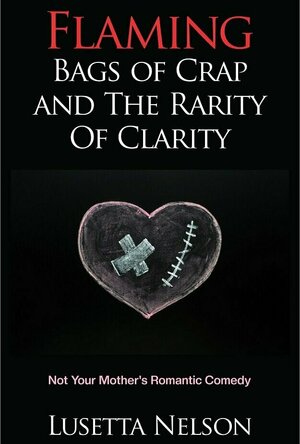
Flaming Bags of Crap and the Rarity of Clarity: Not Your Mother's Romantic Comedy
Book
What’s worse? To want something desperately but never be able to have it or to have it but feel as...
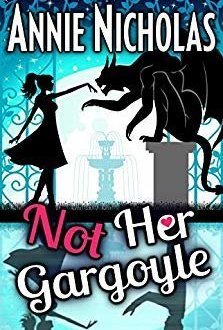
Not Her Gargoyle (Not This Series Book 5)
Book
Ruby is done with jerks, dead-end jobs, and eviction notices. Everyone else she knows is finding...
paranormal romance shifter adult romantic comedy humor


